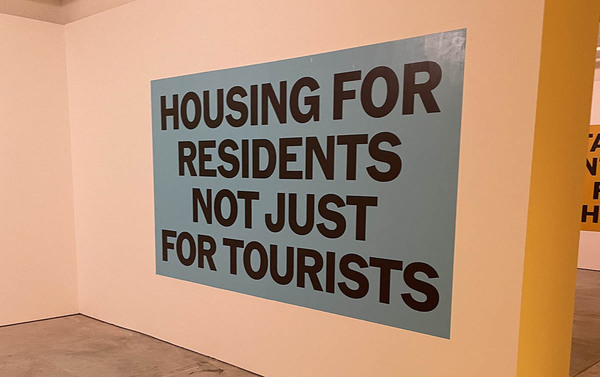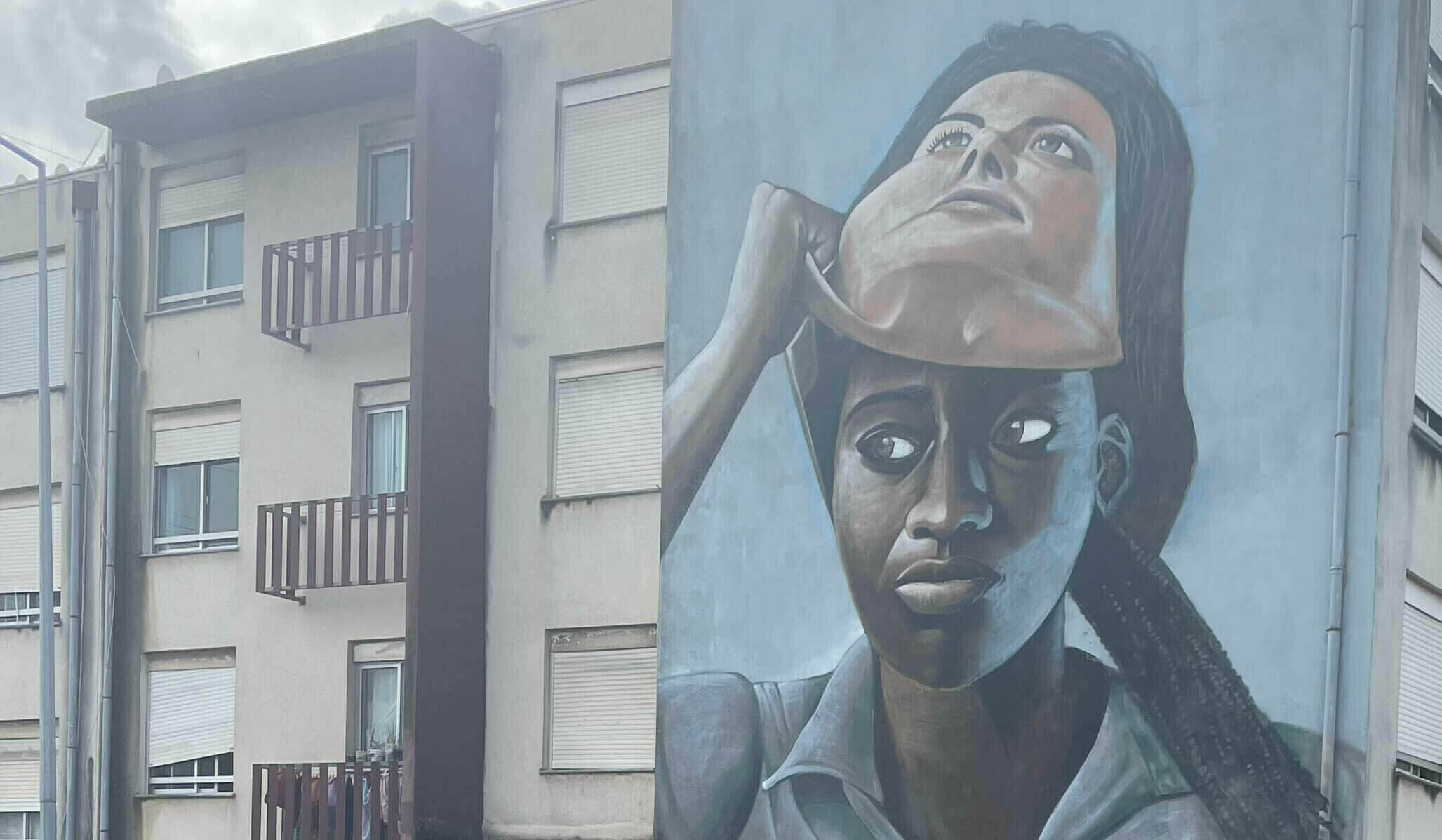Ida Addo ’24 is a senior at the University of Notre Dame majoring in economics with a minor in the Hesburgh Program in Public Service. During the fall of 2023, she traveled to Lisbon, Portugal, supported by a Nanovic Institute grant to study housing policies in Portugal and how they relate to the previous research she completed in London during spring break 2023.

“I AM WRITING THIS IN ENGLISH BECAUSE SOON THERE WILL BE NO PORTUGUESE LEFT,” a placard held by a protester in a video at the Garagem Sul (Cultural Center of Belém) reads. There I stood, deeply convinced that housing is political.
Housing matters politically due to its centrality to the economy and daily lives. The electric charge among the protestors encapsulated the severity of the threat to their homes and livelihood. Housing policy, I find, affects well-being through a wide range of channels including access to decent shelter, environmental quality, efficient use of scarce resources, and the type and extent of commuting.
Behind the colorful buildings and the vivid yellow trams are Lisbon dwellers who describe their city as a place “with too many people for the available housing, yet too many houses for the people.” This paradoxical statement has become a reality through the commodification of housing. Unbridled touristification and financialization of housing have been disastrous to Lisbon dwellers who have been priced out of their homes due to foreign investment through the Golden Visa program or Right To Buy policies. This creates a new urban poor. “Casa, um privilégio ou direito?” translating to “Home, a privilege or right?”, another protester in the video questions.
Housing as a global and local crisis
Globally, housing has been caught between the banter of politics and the grabs of private financial investments, and Lisbon is a telltale of this phenomenon. The seemingly overnight housing crisis is a conjuncture brewed over the slow transition from a welfare state to a neoliberal economy. The evolution of my Spring 2023 research project in London titled, “London Urbanscape and Policies: Their Effect on the Economic State of The Windrush Generation” and its findings compelled me to think of housing as not simply a reaction to the social environment. How does the state of contemporary housing in Lisbon stand in the context of the political transitions and active decolonizations of former Portuguese colonies that occurred in 1970s and 80s Portugal?
In the face of the imminent housing crisis around the world, we have failed to question how political realities temper policy, specifically housing policy. This is where my research project is interested in updating scholarly work on this topic. My focus is on uncovering the weight of political ideologies and politics on housing policy by studying the convergence/divergence between London and Lisbon in the 1970-80s.
Behind the colorful buildings and the vivid yellow trams are Lisbon dwellers who describe their city as a place “with too many people for the available housing, yet too many houses for the people.”
The archival research I conducted at the University of Lisbon in the Social and Political Sciences revealed profound information on key legislative housing initiatives. The authoritarian regime of Estado Novo used housing as a tool for the re-education of a demoralized population and the construction of a new model of the citizen. This resulted in neighborhoods built to rehouse families from Lisbon’s shanty towns. The political efforts of social movements post-revolution in creating the Serviço de Apoio Ambulatório Local (SAAL) program which advocated for social housing and housing as a right cannot go unnoticed.
Understanding the influence of past policies on the present
Garagem Sul’s "Living in Lisbon" exhibition, which houses the video of the protests, highlights the architectural housing strategies undertaken in the Portuguese capital over the past 50 years of democracy—revealing underlying market influences, political dogmas, and urban governance structures. In so doing, it draws attention to the framing of policies to align with the particular political ideologies to which ruling governments subscribe.

My research would have been incomplete without visiting Quinta do Mocho, a social housing project in Sacavém, which houses first to third-generation immigrants from former Portuguese African colonies. A combination of social exclusion, high unemployment, and poor housing standards have contributed to the many social problems this community of low-income households faces. Yet, the estate, through its residents, has transformed itself into one of the biggest open-air galleries in the world, with street art that pushes against the forced "ghettoisation" label. The housing crisis in Lisbon is vast—from housing inadequacy in the peripheral crowns of Lisbon to evictions due to Right to Buy policies and the Golden Visa programs. This research project exposed the policies of the past that have shaped contemporary housing in Lisbon, allowing for research and data into solution-oriented policy alternatives to the housing crisis.

All in all, I am a better researcher because of my visit to Lisbon. It challenged me to look more keenly at curated narratives and to ask nuanced questions about local governance, social cleansing, and economic exclusions in a city whose structures and cultural contexts are different from what I am familiar with. Being directed by my curiosity and a willingness to let go of impractical and stringent research expectations allowed for a more enriching experience in Lisbon. The joy in such research lies in the thrill of discovery— of oneself, of our environment and its challenges, and of humanity.